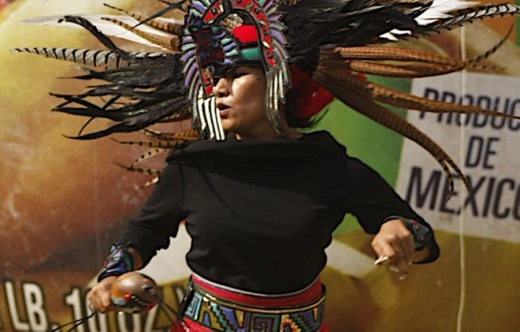“My mom said her great grandma ... used to whisper to her at night when she’d go to sleep, ‘If you want to find our people, they’re all up in Oklahoma,'” she said.
It was not until she was an adult that Rivera, who also goes by Abuela M’api Rainflowa, began to research her heritage more closely. Eventually, she found census records of her family members from the early 1800s with the descriptor “Indian” crossed out and replaced with Hispanic.
“We had to pick,” she said. “There was no way they were going to call us Texans because we were not of European descent. So we became Mexican to survive.”
Now, Rivera helps educate Houstonians about the city’s often-overlooked Indigenous roots. In September, her advocacy led Houston to officially recognize the second Monday of October as Indigenous Peoples Day.
Council members voted 14-2 Sept. 30 to support the measure, which does not make the day a city holiday but recognizes it on the same day as the federally recognized Columbus Day.
Rivera and other Native American groups have been advocating for this recognition for years. She said she gained an added sense of urgency after the recent death of Enrique Hynes, an elder of the Carrizo- Coahuiltecan nation of Texas. Rivera said Houston’s acknowledgement of Native history through Indigenous Peoples Day and the removal of the Christopher Columbus statue at Bell Park is the starting point—not the endgame—when educating the public.
She continues her work with Houston Aztec Dance Group, also called Calmecac Tonantzin Yolilitzyotl, which leads dances and drum circles in parks in the Northside, East End and at Buffalo Bayou Park. The group also visits Houston ISD to reach students who may not know about their city’s or even their family’s Native history. “I’m grateful that I found out enough about it for myself,” she said. “I hope to be a living testimony for other people to feel good about themselves and know who they are because there is a war inside of us. ... The common root is that we may have been colonized by Spaniards ... but the original root is Native American.”





